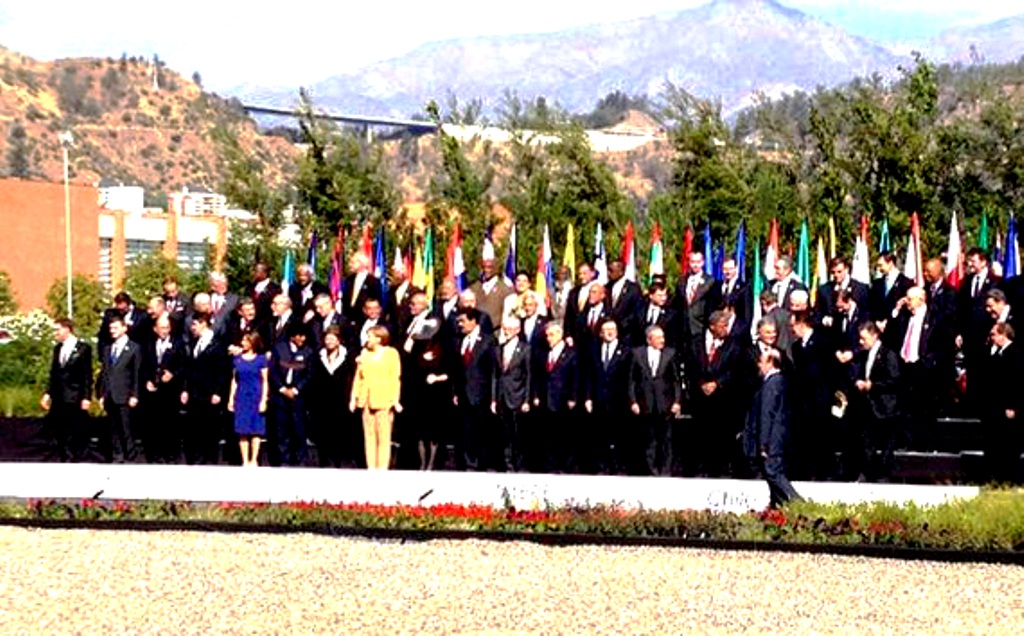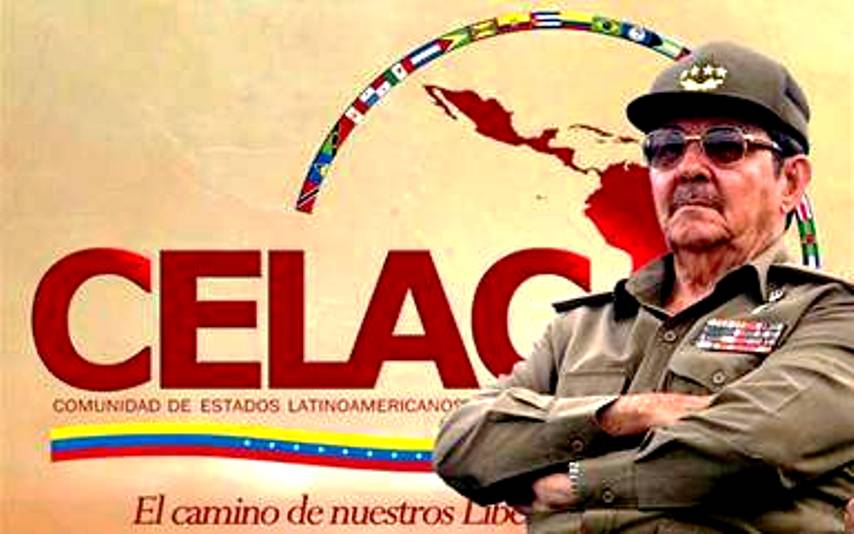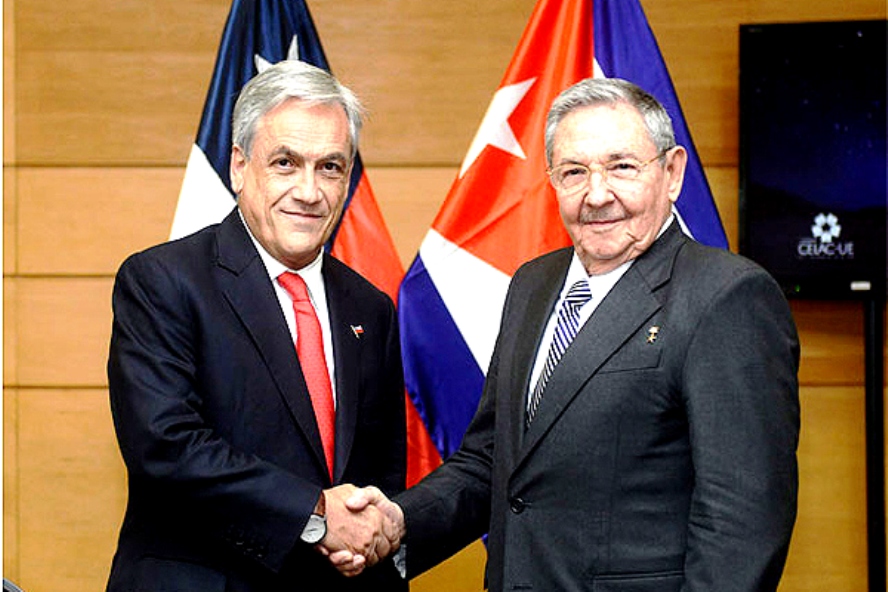Once again Miriam Celaya said it best.
From her Blog, Sin Evasion/ Without Evasion
The recent ascent of the Cuban President-General to the head of the Community of Latin American and Caribbean States (CELAC) and the silent tolerance or evident indulgence of thirty democratic nations, even before the arrogance that permeated his speeches, highlights the political cross-dressing of “our America”.
Some specific details on the speeches of Castro II, like lessons he offered his… counterparts(?) with regard to drug trafficking and consumption, based on the Cuban experience, on the strategic utility of the death penalty and the egregious disrespect he demonstrated against the will of the majority of the Puerto Rican people – who recently endorsed their sovereign decision to remain a commonwealth – when he expressed his regret at the absence of that island nation at the conclave, and his wish that one day it would serve on the CELAC, are just an example of how we need to advance the region’s democratic culture.
The General’s blunders were welcomed by undaunted representatives of Latin-American democracies attending the meeting, who even applauded the rudeness of the old former guerrilla, wearing a civilian costume for the occasion. So we attended, among smiles, compliments, and handshakes, the alliance of democratically elected governments in the region – whose countries have multiparty systems, freedom of movement, of expression and of the press, freedom of association and other civil advantages that embellish democracies – with the ancient Antillean satrapy, thus legitimizing his dictatorship. The new Latin-American principle was explicitly made: gloss over what they have termed “our ideological and political differences in order to consolidate “the unity of our sister countries” and maintain “the respect to self-determination” of each peoples.
Obviously, the thirty-plus Latin American governments meeting in Santiago de Chile decided that the totalitarianism imposed on Cuba is not only an “ideology”, but has long remained in power thanks to the self-determination of the Cuban people (though we have to admit that they may have a point in the latter). Perhaps Chavez’s oil, the subtle detail that the new capital of Venezuela is located in Havana or that the investments of certain Latin-American enterprises in Cuba might have had something to do with such regional empathy.
Another thing that was not clear to me was what commitments the Cuban government might have entered into with the CELAC chairmanship, what advantages Cubans could expect from those commitments and what the projections are for the medium and long terms as far as the progress of the Latin American and Caribbean countries. At least from what they aired in Cuba, the speeches were geared more towards historical references that would justify our supposed common identity, towards the need to overcome poverty, and the command to create a common front in the presence of powerful economies of the developed nations of the First World. Too many clichés in the speeches. As is customary, there were also many “what’s” but few “how’s”.
In this vein, while in Cuba’s interior the dictatorship does not give one iota about civil liberties, it flaunts the presidency of the umbrella organization of democratic nations in the region. The General’s aggressive speech, presenting the violence of the Cuban experience as the legitimate letter of the government, seems to enjoy the complicity of those attending the regional event while the loneliness and helplessness of the Cuban people escalates. The dictatorship’s summit has ended, and, as for me, if those governments exemplify our siblings, then I’d rather be an only child.






